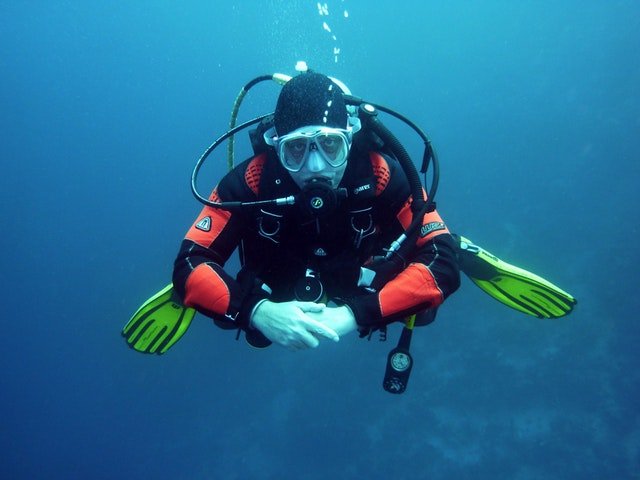
In a new study from University of Western Australia, researchers suggest that older, overweight scuba divers need to shed pounds to avoid an underwater heart attack.
They find that divers who learned to dive years ago and who are now old and overweight, with high blood pressure and high cholesterol, are at increased risk of dying.
It is estimated that around 3.3 million Americans and 2.8 million Europeans will scuba dive this year.
While recreational diving death is rare, the number involving heart issues is climbing.
For example, from 1989 to 2015, the proportion of diving death involving 50-59 year-olds increased steadily from 15% to 35%.
The diving death in the over-60s soared from 5% to 20%. Cardiac events such as heart attacks are now the second leading cause of death behind drowning.
People who pay to go diving must learn skills and theory and be screened for fitness. But, after that initial screening, certification to scuba dive lasts for life.
Until now there has been no clear picture of how common cardiovascular risk factors are among active divers.
Previous research has been limited to surveys of dive club members or insured divers. This was the first study conducted among divers in the general population.
In the study, the researchers described the the heart health among active adult recreational scuba divers in the USA.
They examined data from 2011, 2013, and 2015 Behavioral Risk Factor Surveillance System data of scuba diving.
They found that one-third of active US scuba divers were aged 50 years and older with high cholesterol, around half were overweight, more than half reported having smoked cigarettes, and 32% reported hypertension or borderline hypertension.
High cholesterol, hypertension, high body mass index, and smoking are all big risk factors for heart disease.
The researchers suggest they should all be addressed during routine diving fitness physician assessments, to reduce the risk of mortality while diving.
Dr. Peter Buzzacott, of the University of Western Australia, in Crawley, Australia is the study lead author.
The study is published in the European Journal of Preventive Cardiology.
Copyright © 2018 Knowridge Science Report. All rights reserved.
Follow Knowridge Science Report on Facebook and Twitter.
Figure legend: This Knowridge.com image is for illustrative purposes only.
Journal reference: Peter Buzzacott et al, Risk factors for cardiovascular disease among active adult US scuba divers, European Journal of Preventive Cardiology (2018). DOI: 10.1177/2047487318790290



